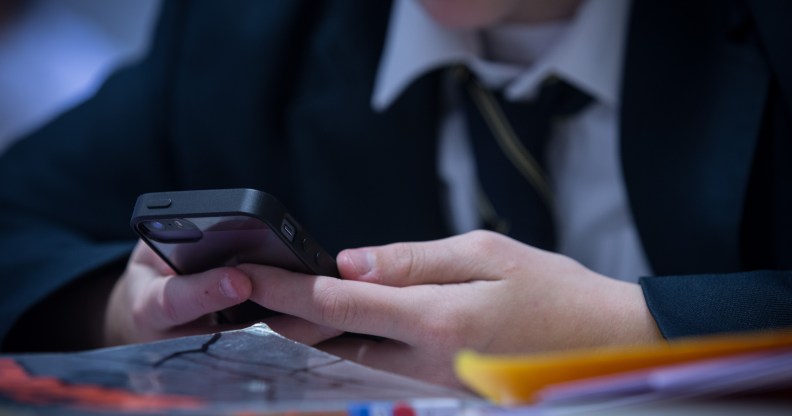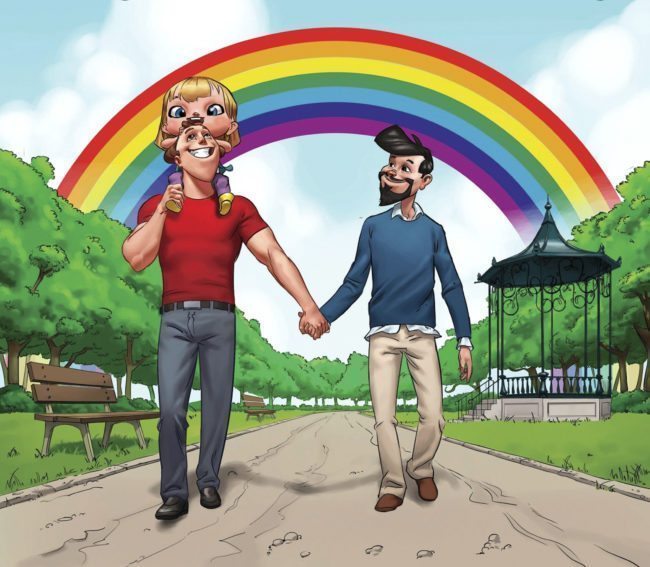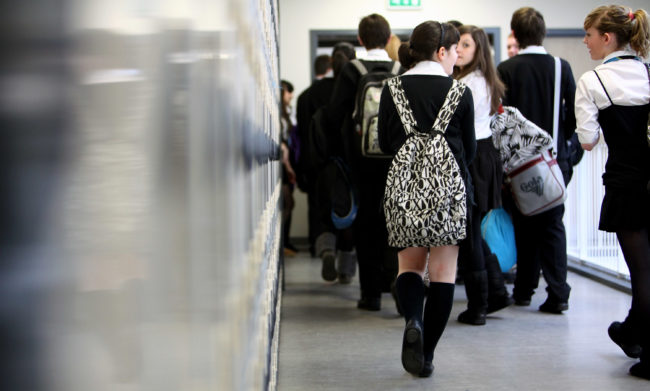Government risks ‘neglecting needs of LGBT youth’ in sex education

A pupil uses his mobile phone for research during a english lesson at the Ridings Federation Winterbourne International Academy in Winterbourne near Bristol on February 26, 2015 in South Gloucestershire, England (Matt Cardy/Getty)
Campaigners have expressed concern with the findings of the first round of public consultation on what schools should be teaching in the Relationships Education and Relationship and Sex Education (RSE) curricula.
The consultation, which runs until November 7, 2018, was called following government plans to introduce the mandatory subjects in schools across the country by September 2020.
Then-Education Secretary Justine Greening promised the revised curricula would be inclusive of LGBT issues, although the draft guidance published under her successor Damian Hinds in July leaves schools “free to determine how they address LGBT specific content,” even if the ministry’s recommendation is that the teaching “is integral throughout the programmes of study.”

A picture of a gay family from a children’s book (STR/AFP/Getty)
Campaigning group Level Up believes this position risks excluding LGBT+ students “from the information they need to have happy, healthy relationships,” particularly following the review of the open consultation’s responses so far, which the group obtained following a Freedom of Information request.
The findings from the Ipsos MORI executive summary show that the vast majority of respondents to the consultation are adults (15,528 of the total 17,852) and only 13 percent came from young people—a majority of these were cast by people aged 15-18 years old.
The report also indicates that “opinions were split regarding when children should be taught about LGBT relationships,” with several respondents believing that it wasn’t appropriate to teach about these issues at primary school.
This is despite “relationships with family” emerging as the most popular topic of discussion for pupils taught about Relationships Education, which is meant to encompass an understanding of different kinds of family compositions.

Pupils at Williamwood High School make their way to classes in Glasgow, Scotland. (Jeff J Mitchell/Getty)
In secondary education, the report noted “teaching about gender and sexual identity was seen as important. Other themes that emerged were marriage, sexual health, contraception, safe online relationships, mental health and physical health.”
But as Level Up campaigners noted, there is a big discrepancy in responses with regards to the importance of marriage as part of the RSE teachings—only 3 percent of young people who responded to the survey wanted information on marriage, compared to 39 percent (5,746) of adult respondents who stated that commitment is the most important subject area, with an emphasis on traditional marriage.
In comparison, 31 percent of young people who answered the consultation stated that teaching about gender and sexual identity in SRE would contribute to “raising awareness and acceptance” of LGBT+ youth.
“We would encourage schools to ensure RSE truly represents LGBT identities and communities because that’s the only way it will be relevant, effective and truly inclusive of all students,” said Lisa Hallgarten, Head of Policy and Public Affairs at Brook, a charity working to provide wellbeing and mental health support for young people.
Bryony Walker, Campaign Director at Level Up, encouraged young people to submit their responses to the open consultation through the organisation’s website.
“I grew up in a violently homophobic home, I would do anything to turn by the clocks and get a decent sex education at school for me and my brothers and sisters. And now’s our chance,” she said. “Providing young LGBTQ+ people with the information they need to have happy healthy relationships is essential, not optional.”

